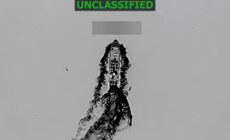-
Red Flag Warnings Issued in These States: What To Know - 14 mins ago
-
Sam Rivers, Bassist for Limp Bizkit, Dies at 48 - 16 mins ago
-
Healthcare workers strike at Kaiser Permanente ends after 5 days - 20 mins ago
-
Panthers’ Bryce Young Exits Game With Worrisome Ankle Injury - 51 mins ago
-
U.S. Kills 3 on Boat Suspected of Smuggling Drugs for Colombian Rebels - 60 mins ago
-
College Football Program Fires Coach After 12-Point Loss - about 1 hour ago
-
A Fragile Cease-fire Between Afghanistan and Pakistan Ends Violence, for Now - 2 hours ago
-
Dodgers’ Mookie Betts Sends Message to Brewers After NLCS - 2 hours ago
-
Epoch Times Reporter Resigns After Publication Signs Pentagon Rules - 2 hours ago
-
Florida Fires Billy Napier After Two-Point Win - 3 hours ago
Saudi Arabia Looks to Trump for US Defense Pact
Saudi Arabia is negotiating a sweeping defense pact with the Trump administration that would bind Washington to treat any attack on the kingdom as a threat to U.S. security, according to a new report in The Financial Times.
Modeled on last month’s U.S.-Qatar agreement, the deal would deepen military and intelligence cooperation while carrying far-reaching implications for Middle East stability and America’s global strategic posture.
Newsweek has contacted the U.S. State Department and Saudi Arabia’s Foreign Ministry for comment.
Why It Matters
The proposed pact reflects efforts by Crown Prince Mohammed bin Salman, informally known as MBS, to secure long-term U.S. protection. As Saudi Arabia’s day-to-day ruler, MBS controls much of the kingdom’s political and military decision making, making a formal security agreement with the U.S. a key priority for Riyadh.
For Washington, the agreement would reinforce its influence in the Gulf amid growing Chinese and Russian involvement in the region through energy, investment, and security partnerships. The pact could also affect the trajectory of Arab-Israeli normalization efforts, including potential Saudi participation in the Abraham Accords.

What to Know
Saudi Arabia hopes to finalize the deal when MBS visits the White House next month. People familiar with the discussions described expectations for a “robust” agreement that expands intelligence sharing, joint defense planning, and counterterrorism operations.
A senior Trump administration official confirmed the talks to the FT, saying: “There are discussions about signing something when the crown prince comes, but the details are in flux.”
The White House and State Department have not issued an offical statement on the matter, though the State Department called U.S.-Saudi defense cooperation “a strong bedrock of our regional strategy.” It added that Washington “will continue to work with Saudi Arabia to resolve conflicts, promote regional integration and deny safe haven to terrorists.”
The Saudi Embassy in Washington did not respond to requests for comment.
Qatar Pact
The discussions follow last month’s U.S.-Qatar defense pact, which pledged to treat any attack on the Gulf state as a threat to American “peace and security.” That agreement came days after Israeli missile strikes on Doha targeted Hamas political leaders, reigniting fears of a broader regional escalation.
A similar pact with Riyadh would mark a significant shift for U.S. policy in the region. It would restore Saudi Arabia’s traditional security relationship with Washington after years of strain and could revive prospects for the Abraham Accords—the U.S.-brokered framework that normalized ties between Israel and several Arab states in 2020.

October 7
Saudi Arabia had previously pursued a U.S. defense treaty under the Biden administration tied to possible normalization with Israel. That effort collapsed after Hamas’s October 7, 2023, attack and the ensuing war in Gaza. MBS, who has accused Israel of committing genocide, has said normalization can occur only if a Palestinian state is established—a condition Israeli Prime Minister Benjamin Netanyahu rejects.
A Renewed Partnership
MBS’s upcoming visit will be his first to the U.S. since 2018 and signals a potential diplomatic reset. He has maintained a close relationship with President Donald Trump and his son-in-law Jared Kushner, who played a central role in the original Abraham Accords. During Trump’s first term, the White House announced a record $142 billion arms deal with Riyadh—double the kingdom’s 2024 defense budget—described as the largest in history, encompassing missile defense, aerospace, and border security.
What Happens Next
Negotiations are expected to intensify ahead of MBS’s arrival. Officials on both sides aim to produce a formal agreement that strengthens U.S. military commitments in the Gulf and reaffirms Washington’s role as the region’s ultimate security guarantor.
For Saudi Arabia, the pact would cement its strategic partnership with the U.S. and enhance its global standing. For Trump, it would mark a cornerstone of his renewed Middle East policy, one that could redefine regional alliances for years to come.
Source link




















